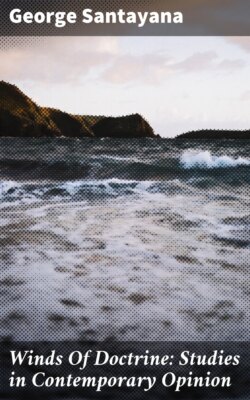Читать книгу Winds Of Doctrine: Studies in Contemporary Opinion - George Santayana - Страница 6
На сайте Литреса книга снята с продажи.
FOOTNOTES:
ОглавлениеTable of Contents
[1] Perhaps some unsophisticated reader may wonder if I am not trying to mislead him, or if any mortal ever really maintained anything so absurd. Strictly the idealistic principle does not justify a denial that independent things, by chance resembling my ideas, may actually exist; but it justifies the denial that these things, if they existed, could be those I know. My past would not be my past if I did not appropriate it; my ideas would not refer to their objects unless both were ideas identified in my mind. In practice, therefore, idealists feel free to ignore the gratuitous possibility of existences lying outside the circle of objects knowable to the thinker, which, according to them, is the circle of his ideas. In this way they turn a human method of approach into a charter for existence and non-existence, and their point of view becomes the creative power. When the idealist studies astronomy, does he learn anything about the stars that God made? Far from him so naive a thought! His astronomy consists of two activities of his own (and he is very fond of activity): star-gazing and calculation. When he has become quite proficient he knows all about star-gazing and calculation; but he knows nothing of any stars that God made; for there are no stars except his visual images of stars, and there is no God but himself. It is true that to soften this hard saying a little he would correct me and say his higher self; but as his lower self is only the idea of himself which he may have framed, it is his higher self that is himself simply: although whether he or his idea of himself is really the higher might seem doubtful to an outsider.
